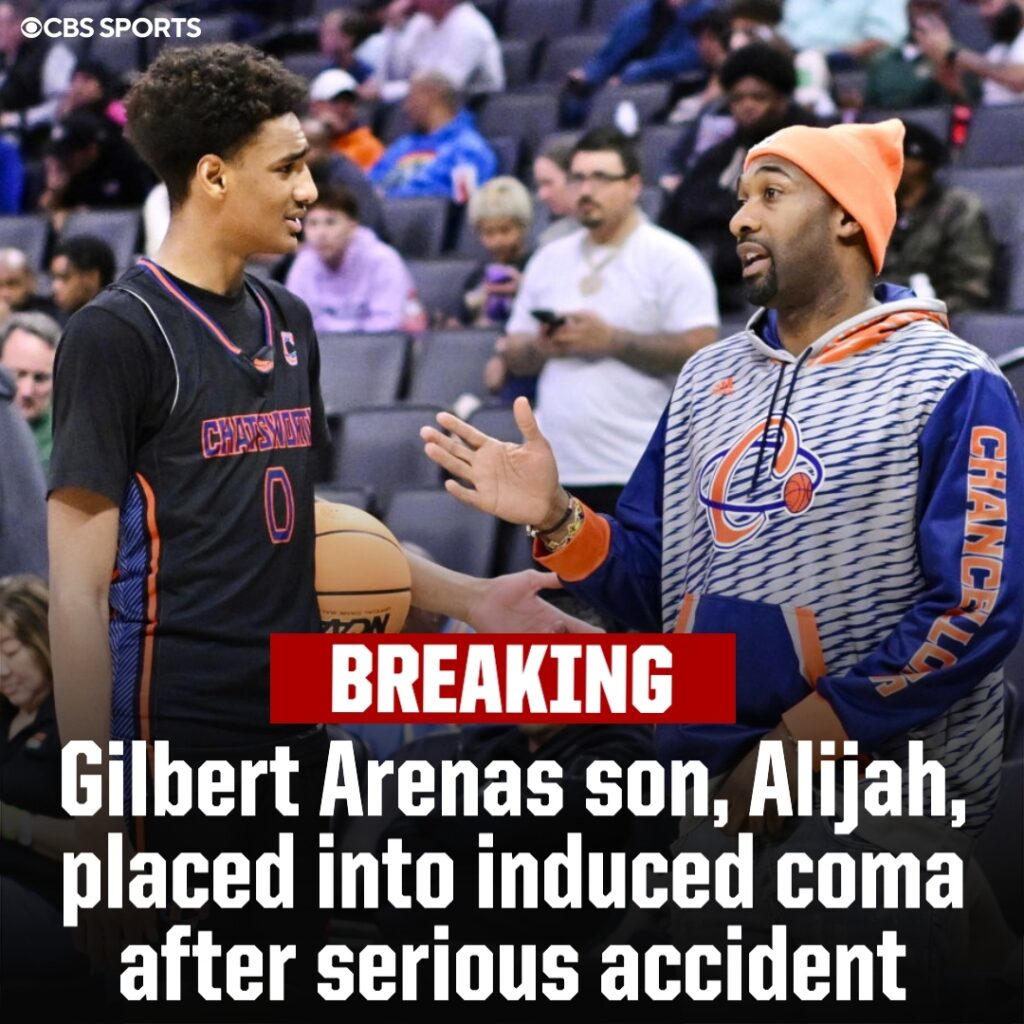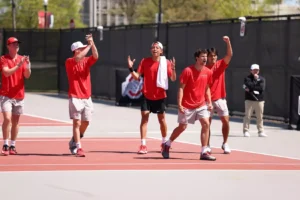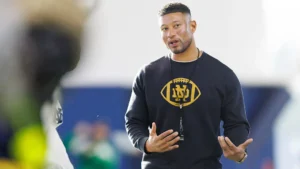
Alijah, the son of Gilbert Arenas, was put into an induced coma following a severe accident.
In an unexpected and heartbreaking turn of events, Alijah Arenas, the son of former NBA star Gilbert Arenas, has found himself in the fight of his young life after a severe accident that led to him being placed in an induced coma. The news has rocked the Arenas family, fans, and the broader sports community, as the young man’s road to recovery becomes a testament to the strength of both his body and spirit.
Alijah’s accident, though shrouded in some uncertainty, has sparked widespread concern and support from loved ones, as well as from the fans who have followed his family’s journey through both triumph and adversity. As the Arenas family faces this difficult time, we look at how such tragedies affect families, the role of medical care in recovery, and the resilience of a young man now fighting for his life.
Details surrounding the exact nature of Alijah’s accident have been kept private, as is often the case in such sensitive situations. However, sources close to the family confirm that Alijah sustained significant injuries, prompting doctors to induce a coma in hopes of stabilizing his condition. The decision to place someone in an induced coma is often a difficult one but is necessary when the brain is at risk of further damage due to swelling or trauma.
Alijah, who is still a young man in his teens, has been the subject of public interest for most of his life, given his father’s prominence in the NBA. Gilbert Arenas, a former All-Star for the Washington Wizards, has been open about the challenges of balancing fame with fatherhood, and this new chapter of his life is a painful reminder of the vulnerabilities all families face, regardless of their public status.
Gilbert Arenas, known for his sharp shooting on the basketball court, now finds himself navigating an entirely different kind of pressure. While he’s faced highs and lows in his professional career, none could prepare him for the emotional toll that comes with seeing his son in critical condition. His public persona as a confident athlete contrasts sharply with the raw vulnerability a father feels when his child is fighting for their life.
In a statement, Gilbert shared his gratitude for the outpouring of support from fans, friends, and family members. However, it’s clear that this situation has tested him in ways basketball never could. “As a father, it’s my job to protect my children. This is the hardest thing I’ve ever had to face,” he wrote on social media. “Alijah’s strength is incredible, and I’m hopeful that we will get through this together as a family.”
It’s moments like these that remind us that athletes are not invincible. Despite the fame and fortune, they, too, are human, experiencing the same pain, fear, and worry as any other parent.
An induced coma is typically used to stabilize a patient after a traumatic injury, especially when brain injuries are involved. It involves putting the person into a medically controlled state, where their brain activity is significantly reduced to allow the body time to heal. For Alijah, this means that while his body is in a state of rest, doctors are closely monitoring his vital signs, and his family remains by his side, hoping for signs of recovery.
Brain trauma, especially in young people, presents a host of challenges. The brain is still developing in teens and young adults, making any injury potentially more complex. However, it’s also important to remember that the human body is capable of remarkable recovery. Advances in medicine have made it possible for many individuals to recover from injuries that would have once been fatal or permanently debilitating.
Over the coming weeks, Alijah’s medical team will work to gradually bring him out of the induced coma, assessing his neurological responses and determining his path to recovery. It’s likely that the Arenas family will experience a range of emotions, from cautious optimism to moments of despair as they wait for updates on his condition. The family’s strength will undoubtedly play a significant role in his journey.
While Alijah’s story has primarily captured the attention of sports fans and media outlets, it’s crucial to recognize the emotional toll such events take on the individuals involved. Families of accident victims often face not only the physical and mental stress of recovery but also the emotional weight of uncertainty. Every hour spent waiting for signs of improvement can feel like a lifetime, with parents and loved ones caught in an emotional limbo between hope and fear.
Alijah’s condition has also resonated with many who have been following the Arenas family for years. Gilbert, once one of the NBA’s most electrifying players, built a legacy in Washington, D.C., both on and off the court. His charisma and often controversial personality endeared him to fans, but it’s his role as a father that truly defines his current chapter.
The broader community, including Gilbert’s former teammates and fellow athletes, have rallied around him. Messages of support have poured in from across the sports world, as colleagues and peers have expressed their solidarity with the Arenas family during this time of crisis.
While the situation is undoubtedly dire, there are reasons for hope. Advances in trauma care, particularly in the treatment of brain injuries, have led to an increasing number of survivors of severe accidents who go on to lead fulfilling lives. It’s clear that Alijah’s story is far from over, and his journey, though difficult, could serve as an inspiration for others facing similar challenges.
For now, the Arenas family’s focus remains squarely on Alijah’s recovery. As Gilbert has shared, their immediate priority is to remain strong for Alijah, supporting him through every stage of recovery and ensuring that he feels surrounded by love and positivity.
The Arenas family is now in the midst of an unimaginable trial, but the outpouring of support from fans, friends, and the public has been a reminder that even in times of crisis, the bonds of love and community can be a source of tremendous strength. The next few weeks and months will undoubtedly be difficult for Alijah, Gilbert, and their loved ones, but hope remains that with time, medical care, and the power of family, recovery is within reach.
As we follow Alijah’s journey, let us remember the importance of supporting those who face unimaginable challenges. Whether or not we know them personally, we all have the ability to send our positive thoughts and prayers, contributing to the collective strength that can make all the difference in a time of crisis.





